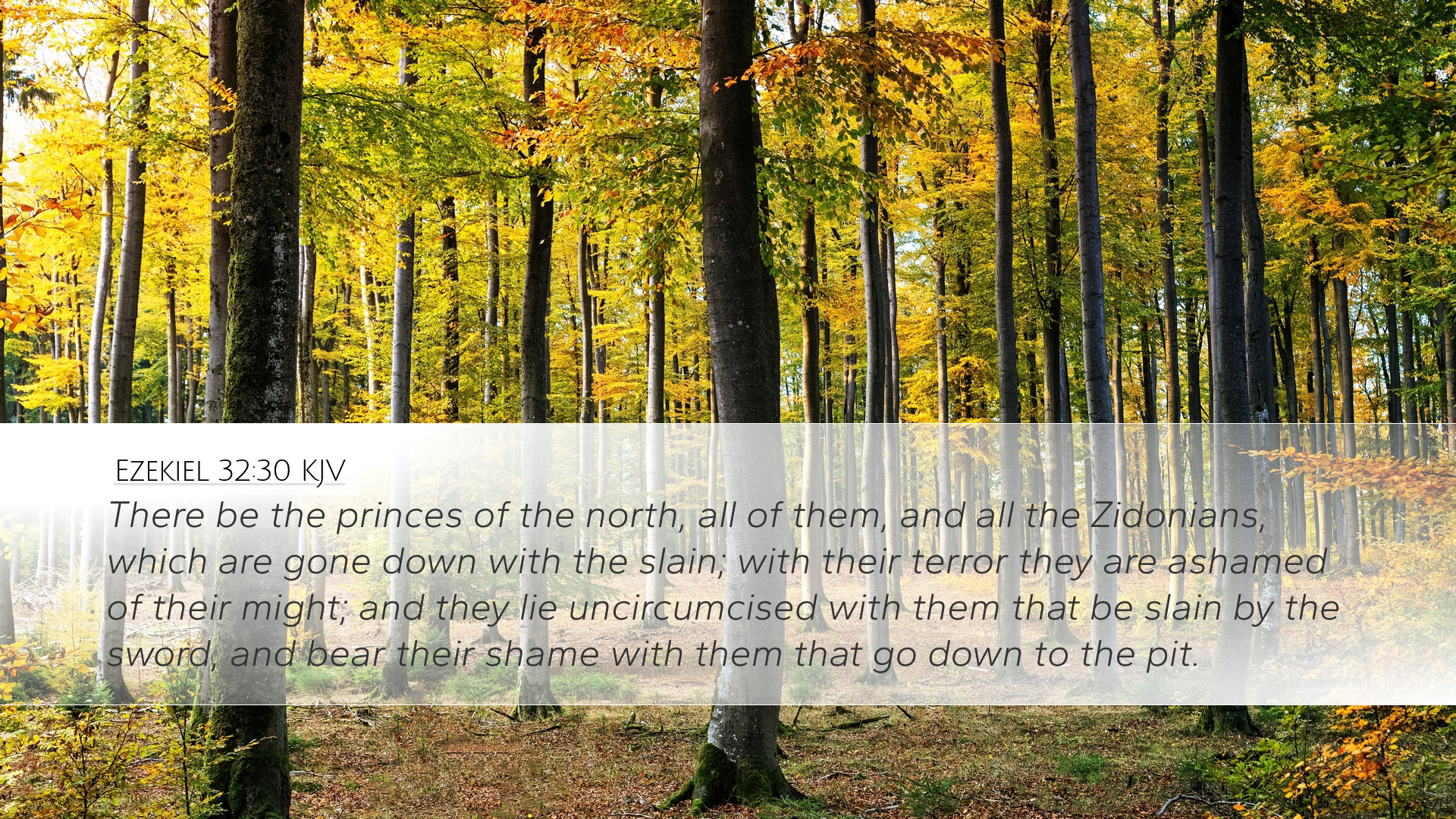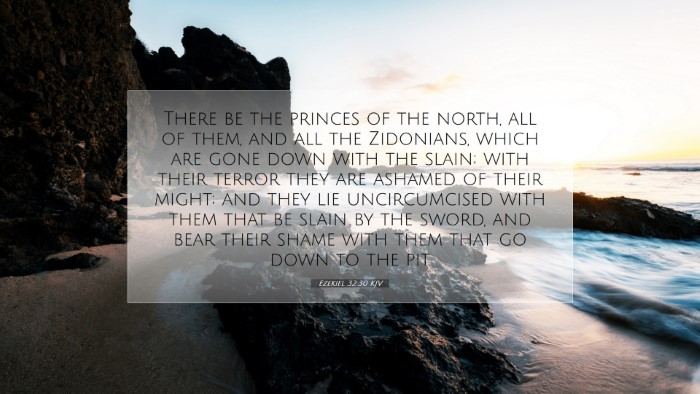Commentary on Ezekiel 32:30
Ezekiel 32:30: "There is Elam and all her multitude round about her grave, all of them slain, fallen by the sword, which are gone down uncircumcised into the nether parts of the earth, which caused their terror in the land of the living; yet have they borne their shame with them that go down to the pit."
Introduction
This verse resides within a larger prophetic context, where Ezekiel delivers a lamentation over Egypt and its allies, highlighting the consequences of their rebellion against God and the inevitability of divine judgment. The reference to Elam is both historical and theological, as it encapsulates the fate of nations that operate outside of the covenant blessing of God.
Historical Context
The Elamites were known to be descendants of Shem, residing in the region of present-day Iran. Historically, they were often in conflict with other nations, including the Israelites. In understanding the fate of Elam, one must recognize the geopolitical dynamics of the time and the theological implications of such alliances.
Commentary Insights
- Matthew Henry: Henry notes that the verse indicates the finality of judgment upon Elam. Their multitude round about the grave signifies not only physical death but spiritual desolation. Henry emphasizes the significance of being “uncircumcised,” indicating a lack of covenant relationship with Yahweh, which is the ultimate source of their condemnation.
- Albert Barnes: Barnes expands on the imagery of “grave” as representing the place of the dead. He underscores the fact that Elam's fall and judgment were reflective of their terror in the land of the living, suggesting that their previous might has resulted in a swift downfall. Barnes also notes that the uncircumcised status signifies not just a physical trait but an exclusion from God’s people and promises.
- Adam Clarke: Clarke provides an in-depth analysis of the term “shame” mentioned in this verse. He asserts that shame in this context refers to their guilt and the disgrace of not embracing true worship of God. Clarke highlights that despite their previous terror instigating fear in the land, it ultimately led to their own demise in the pit of despair.
Theological Implications
This verse, when viewed theologically, offers significant insights into divine justice and the nature of God's judgment. It illustrates that nations, like individuals, are accountable for their actions and their relationship with God. The “nether parts” signifies a consequence of lost identity and a complete severance from the hope of redemption for those who die outside God’s covenant.
Practical Applications for Ministry
For pastors and theologians, Ezekiel 32:30 serves as a reminder of the weight of sin leading to destruction and the importance of preaching about the consequences of turning away from God's ways. Students of the Bible can glean from this passage the historical realities of God’s judgment while also recognizing the need for personal and corporate repentance to avoid analogous spiritual dislocation.
Conclusion
In summary, Ezekiel 32:30 provides a poignant depiction of the fates of nations, particularly Elam, as a reflection of divine judgment. The insights from public domain commentators allow us to examine the complexities of sin, judgment, and the theological significance of being in covenant relationship with God. Their reflections encourage us to consider the broader implications of our actions both personally and ecclesially, and to strive toward a faithful engagement with God’s revelation.


